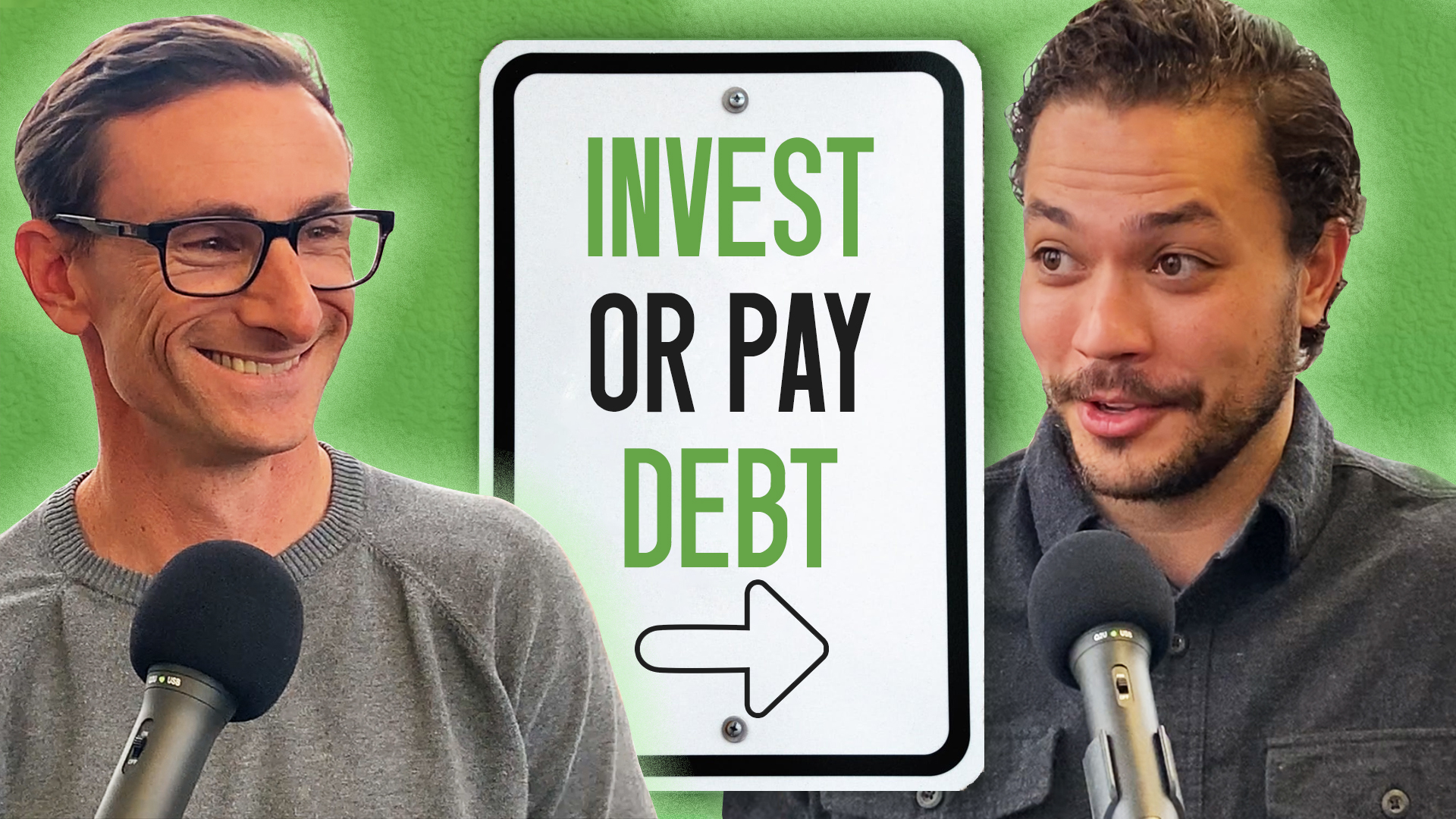Should you pay off debt or should you invest? Today we are talking about what you should do with your money…
Invest Or Pay Off Debt (What to prioritize and when)
Watch Here:
Posts Mentioned:
Full transcript:
SPEAKERS
Alex Okugawa 0:00
Should you pay off debt? Or should you invest? Today we’re talking about what you should do with your money.
Okay, Anthony, let’s dive on into it. So a lot of people think paying off debt or investing is a black and white decision, you know, either comes down to the numbers or it’s not. And honestly, at the end of the day, personal finance can be a lot more personal than it is finance, right? We have to balance the math side of things with the personal side.
Anthony Saffer 0:32
So running the figures is important. In the current environment that we’re in, interest rates are generally low. So unless we’re talking about really high credit card consumer debt, where maybe the interest rate is higher, generally, people are paying less interest on their debt. They’re also earning higher returns on their investments. So the math says, “invest and leave debt.” But going through different market cycles in different economic environments. That’s not always the preferred way of doing it.
Alex Okugawa 0:59
Debt assumes upon a certain future. Now, you have taken clients through many different market cycles, good cycles, and bad cycles. I think you’ve written about this before, but the clients that have their debt paid off, specifically, like a mortgage, handled the great financial crisis of 2008-2009 much differently, and in many ways better than clients that were still dealing with debt in retirement.
Anthony Saffer 1:29
So if you go back to 2008, and I wouldn’t say it was just the mortgages, but people maybe that had more consumer debt, they had more car loans, and just more obligations. Well, what did that mean? It means that their expenses were generally higher, they didn’t have the flexibility to pull back on some of those expenses. Whereas somebody that had minimized debt, and had more flexibility, could adjust the income need, especially if they were in retirement, and were pulling money from investments, it was a much different perspective. Those that didn’t feel strapped by debt payments generally felt calmer during a time like that.
Alex Okugawa 2:05
Now, here’s the thing is you can go online, and you can find a financial calculator, and you can just start plugging in numbers. And it’ll spit out a number and say, “Hey, here’s the most optimized solution for you.” And I think at the end of the day, what you’re getting at is that this is a very personal decision, because how you might react when the market is down 30-40%, and you’re pulling from the portfolio to meet your needs, and you have a mortgage payment, and you have a car payment, can be completely different. And so, in some cases, maybe we recommend folks go ahead and pay off their mortgage and their debts earlier, even when the market is doing as great as it is right now, and debt rates are super low, it can make sense to pay it off. One debt assumes upon a certain future. And then two, when that storm does come, you’re very well prepared. And sometimes the advice can be different for two different people.
Anthony Saffer 2:57
Yeah, the time of life that you’re in also could have an effect. So a young person that’s evaluating that question, Should I pay off debt? Or should I invest? It may be quite different from someone that’s heading into retirement. So for the young person, they may be looking, and go okay, “I have some student loans, I have a car loan. But should I also start putting money into my 401k? Is my employer is matching it?” And a lot of times the answer there is to take a more hybrid approach, build a little bit of a cash reserve, put money into the 401k, at least to get the company match, and then also try to get that debt paid off as fast as possible. But of course, you’re doing that with a limited amount of resources.
Alex Okugawa 3:32
So should you pay off debt? Or should you invest? Sometimes the answer is unsatisfactory because really it depends upon your certain specific circumstance. Here’s what I’d say at the end of the day, whether or not you choose to invest or pay off debt, you’re using a productive use of money. You’re not spending it carelessly, you’re at least either paying off debt or investing it, as a productive use of money, which at the end of the day is a good thing.
Anthony Saffer 3:56
The only thing I’d add to that is the environment we’re in today is not always going to be the same. So just keep that in perspective when you’re making those decisions.
Alex Okugawa 4:03
Now, this is the stuff that we help folks with, should I pay off debt or should I invest? How do I optimize my financial situation? Not just from a mathematical standpoint, but from a holistic view for me and my family. If you’d like to learn more, give us a call or visit our website. We’d love to talk with you
Talk with us about your portfolio or financial plan here: Talk with an advisor
More Reading: 4 Financial Advisor Traits to Look For
This does not constitute an investment recommendation. Investing involves risk. Past performance is no guarantee of future results. Consult your financial advisor for what is appropriate for you. See our website at onedegreeadvisors.com for full disclosures.
Want tax, investment, and planning strategies like this right to your inbox? Subscribe below!
